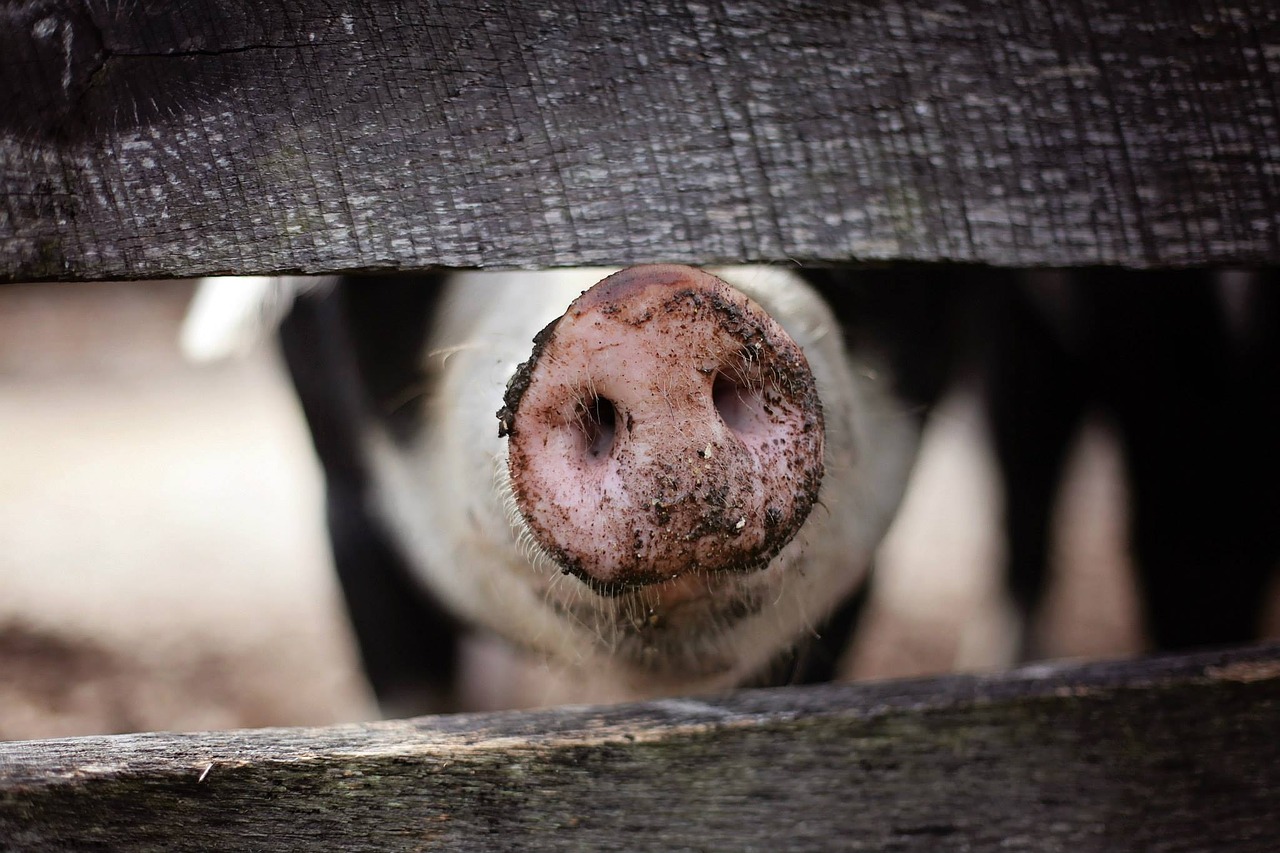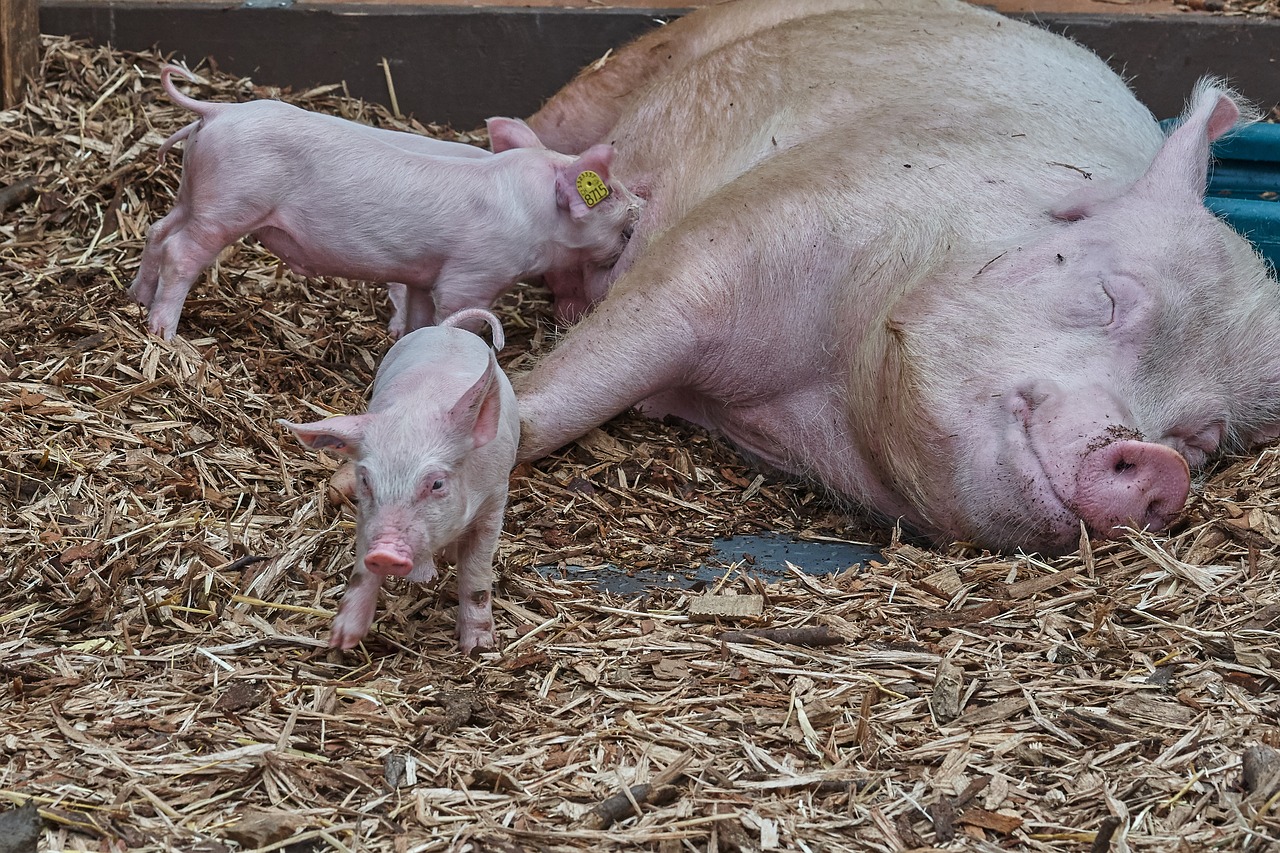
- Inspiring People -
- 4mins -
- 1,992 views
Why pigs are awesome
Pets with personality or just the pork on your fork? This article may challenge your perception of pigs.
Pigs get bad press
Affectionate, inquisitive, sensitive, sociable, and great company, pigs are much more than just meat, and in tests these much maligned creatures display the intelligence of a three-year-old human child.
Surprising things you may not know about pigs
Pigs are the fourth most intelligent creatures in the animal kingdom, ranked only behind dolphins, chimps and elephants. Something they share with this select group is the ability to recognise themselves in a mirror, even at a few weeks old. Few other animals are known to do this.
Piglets can also recognise their name just a few weeks after being born, where it takes most human babies between five and seven months. They can navigate mazes, engage in play fighting, and move a joystick that is linked to a computer cursor.
Pigs are squeaky clean. Though we always link pigs to mud, that doesn’t mean they’re not clean animals. Pigs will roll around in mud to keep cool on hot days (since pigs can’t sweat), but when properly cared for, they’re generally clean and free of any funky smells.
Pigs are highly social animals who cooperate with— and learn from —each other and even show empathetic responses to a companion.
Pigs don’t have fur, they have hair, and the bristly hair pigs have is hypoallergenic, meaning it’s unlikely to cause an allergic reaction. Also, it doesn’t shed, so you won’t be cleaning it up or accidentally breathing it in!
Pigs love a cuddle. Pigs are pack animals just like us, and crave attention and time with their loved ones. If your pet pig wants a scratch or a cuddle, they’ll certainly let you know.
Pigs have some serious communication skills — they can bark, cough, squeal and even make a sound like a laugh when they’re especially leased about something, whether that’s a tasty treat or a new toy.
If a pig considers you their friend or family, you’ll be greeted with a happy squeal right before they roll on their back for a tummy rub!

More interesting piggy facts and reasons to love pigs
Pigs have excellent memories. Studies have shown that pigs can remember where food is stored and places where they have found food before. They can also remember directions and can find their way home from great distances. Pigs can recognise and remember humans and up to 30 other pigs.
Pigs are actually fussy eaters. Pigs in the wild spend a long time foraging for food. Their best sense is smell and pigs root for food with their snouts, happy to find a variety of goodies to eat. Given the freedom, pigs can be very picky eaters. They like to have their menu changed up rather than get the same meal day after day. Pigs eat slowly, nibbling and savoring their food. Pigs do not “pig out” or “eat like hogs” which are more inaccurate phrases people use.
Pigs make good mothers. Pigs have a matriarchal family unit where piglets are cared for by the female relatives. Pigs are good mothers and develop strong bonds and love for her children, just like human mothers do. In the wild, the mother pig builds a nest for her unborn babies in a place she thinks will be safe for them. Sometimes she will walk over 6 miles to find a suitable place and will give birth to her babies in this secluded area. The mother pig will stay with her piglets for about two weeks before returning to the herd where she will wean her babies and teach them how to survive. Mother pigs get anxious when they are separated from their babies and mourn when they are taken away.
Pigs can be heroes. There are many stories of pigs who have faced danger and jumped in to save the day. Pigs have been reported to have saved humans and other animals from drowning, fires, and intruders. One pig flagged down a passing car to help her human companion who was having a heart attack. There are also numerous stories of pigs who manage to escape from trucks bound for slaughterhouses, saving themselves and showing us that pigs, like everyone else, want to live.
Pigs have personalities and feelings. Just like humans, pigs have individual personalities with a wide range of traits and emotions. Some pigs are more playful than others, some are more serious, some are more daring and some are shyer. Some pigs seem to handle stress better than others who may suffer with depression. Pigs experience both positive and negative emotions and can feel happiness, sadness, grief and pain. Pigs are aware of their suffering and losses.
In fact, pigs are highly sensitive animals and can become quickly bored, anxious and depressed when confined to cramped spaces and mistreated. Pigs tend to be peaceful animals and only show aggression when they or their young are threatened. Pigs are curious, insightful, enthusiastic and optimistic animals who like to be entertained and have fun.
From 10 Phenomenal Reasons to Love Pigs, by Rhea Parsons, for One Green Planet.
Source: OneGreenPlanet

The Sad Reality for Most Pigs
Most of the pigs raised in the US are in factory farms where they are confined and will never get to play, be clean, cuddle with each other or be picky eaters. The females will be forcibly impregnated, kept in gestation crates, have their babies taken away from them and eventually be slaughtered. The piglets will be castrated without anesthesia, have their tails chopped off and their teeth pulled out and will never know the protective love of their mothers. All of the pigs will be kept in crowded, dirty conditions with no ability to move. They will be fed poor food and drugs to make them grow so big they won’t be able to walk. Even in the best conditions of the friendliest farm, pigs raised for food will be killed and not allowed to live to their natural lifespan with their families in peace.
‘If only everyone knew how wonderful pigs are and believed that they deserve to live. If only humans were as sensitive and compassionate as pigs are…Please share these reasons to love pigs with others so everyone will see there are so many reasons to love pigs.’ — Rhea Parsons, One Green Planet.
Source: OneGreenPlanet

